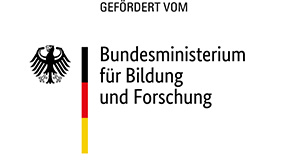Kooperationskonflikte in inklusiven Settings
Collaboration conflicts in inclusive settings
DOI:
https://doi.org/10.21248/qfi.133Schlagworte/Keywords
Kooperation, Konflikt, Inklusion, Lehrkräfte, Collaboration, conflict, inclusion, teachersZusammenfassung
Schulische Inklusion funktioniert nicht ohne Kooperation. Diese bringt einerseits Potentiale mit sich, kann aber auch zu Konflikten führen. Konflikte können auf verschiedenen Ebenen verortet und in verschiedene Typen unterschieden werden. Im Text werden zunächst die sozialwissenschaftliche Konzeptionalisierung von Konflikten und der Forschungsstand zu Konflikten in der inklusiven Kooperation dargestellt. Anschließend werden anhand der Interviewdaten des BMBF-Projekts „P-ink“ Beispiele für typische Kooperationskonflikte zwischen grundschul- und sonderpädagogischen Lehrkräften analysiert. Im Fazit werden Möglichkeiten herausgearbeitet, wie Qualifizierung für Inklusion dem Thema „Kooperationskonflikte“ begegnen kann.
Abstract
Inclusion in schools is not possible without collaboration. It entails potential as well as conflicts. Conflicts take place on different levels and can be divided into different types. Following a socioscientific conception of conflicts and empirical research findings, the article analyses examples of typical collaboration conflicts between primary school teachers and special education teachers based on interview data from the BMBF-Projekts “P-ink“. At last we carve out possibilities how qualification for inclusion can deal with the topic of “Collaboration conflicts”.
Downloads
Veröffentlicht
Ausgabe
Rubrik
Lizenz
Copyright (c) 2024 Claudia Urbanek, Alina Quante, Astrid Rank

Dieses Werk steht unter der Lizenz Creative Commons Namensnennung - Keine Bearbeitungen 4.0 International.



